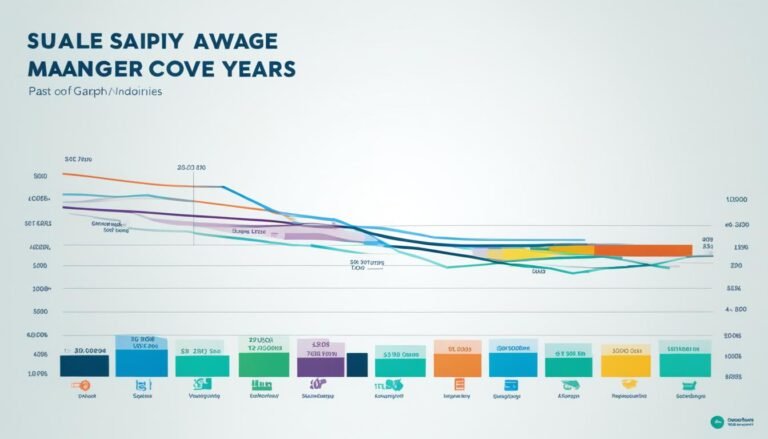Top Operations Manager Interview Questions
Are you preparing for an interview for the role of an operations manager? To help you ace the interview and stand out from the competition, we have compiled a list of top interview questions for operations managers. These questions are designed to assess your ability to handle the responsibilities of the role, including daily tasks, budget planning, logistics management, vendor negotiations, and more.
By familiarizing yourself with these questions and preparing well-thought-out answers, you can showcase your knowledge and experience in operations management, impressing potential employers with your expertise.
Main Daily Tasks for an Operations Manager
An operations manager plays a crucial role in overseeing the day-to-day activities of a company. Their responsibilities encompass a wide range of tasks that contribute to the smooth functioning of the organization. When interviewing candidates for an operations manager position, it is important to assess their understanding of these daily tasks to ensure they are well-suited for the role.
Coordinating Departmental Activities
One of the primary tasks of an operations manager is to coordinate the activities of various departments within the company. They need to ensure that all departments are aligned and working together towards achieving the company’s goals. This involves setting clear objectives, delegating tasks, and facilitating effective communication among team members.
Managing Budgets
Operations managers are responsible for managing budgets and ensuring that resources are allocated effectively. They need to analyze financial data, track expenses, and make informed decisions to optimize budget utilization. By keeping a close eye on financial performance, operations managers contribute to the overall financial health of the organization.
Overseeing the Production Process
The production process is a critical aspect of operations management. Operations managers need to monitor and ensure the smooth execution of production activities. This includes coordinating with production teams, addressing any issues or bottlenecks, and implementing strategies to improve efficiency and productivity.
Ensuring Quality Standards
Operations managers are responsible for maintaining and improving the quality standards of the company’s products or services. They need to establish quality control measures, conduct regular inspections, and implement corrective actions when necessary. By prioritizing quality, operations managers contribute to customer satisfaction and the company’s reputation.
Liaising with Other Departments
Collaboration between different departments is crucial for the successful operation of a company. Operations managers need to liaise with other departments, such as marketing, sales, and finance, to ensure smooth workflows and effective cross-functional communication. This helps in identifying areas of improvement and implementing strategies to enhance overall organizational performance.
Making Key Operational Decisions
Operations managers are responsible for making key decisions that impact the day-to-day operations of the company. They need to analyze data, evaluate risks, and consider various factors to make informed choices. This includes decisions related to resource allocation, process improvements, and problem resolution.
In summary, operations managers have a wide range of daily tasks that require strong organizational, analytical, and leadership skills. By effectively managing these tasks, they contribute to the overall efficiency, productivity, and success of the organization.
Budget Planning and Management
Budget planning is a critical aspect of an operations manager’s role. As an operations manager, you are responsible for creating a detailed financial plan that outlines the company’s financial goals and how they will be achieved.
To effectively manage the budget, it is important to start by reviewing previous budgets and expenses. Analyze the data to identify spending patterns, areas of improvement, and potential cost-saving measures.
Next, consult with department heads to understand their financial needs. This collaboration will help you determine the appropriate allocation of resources and ensure that department goals align with the company’s overall financial objectives.
When prioritizing expenses, it is crucial to consider the company’s strategic goals. Allocating resources to areas that directly contribute to the achievement of these goals will help maximize the budget’s impact.
Throughout the budget planning process, effective communication with stakeholders is key. Keep department heads and other relevant parties informed about the budget decisions and any changes that may affect them.
Finally, monitor and evaluate the budget regularly to ensure that it remains on track. Analyze the actual expenses against the budgeted amounts to identify any discrepancies and take necessary corrective actions.
Tips for successful budget planning and management:
- Include a contingency fund to account for unexpected expenses.
- Consider historical data and industry benchmarks to set realistic targets.
- Regularly review and adjust the budget as needed.
- Utilize budgeting software or tools to streamline the process and improve accuracy.
By implementing effective budget planning and management strategies, operations managers can ensure the company’s financial stability, drive growth, and achieve long-term success.
Logistics Management Experience
As an operations manager, having experience in logistics management is essential for effectively overseeing the flow and storage of goods, services, and information within an organization. When interviewing candidates for this role, it’s important to assess their knowledge and skills in logistics management. Here are some key areas to explore:
- Supply Chain Process: Ask candidates about their experience in overseeing the supply chain process from procurement to delivery. Inquire about their ability to coordinate with suppliers, manage inventory levels, and ensure efficient order fulfillment.
- Third-Party Logistics Providers: Discuss candidates’ experience in working with third-party logistics providers and their ability to effectively manage these relationships. Inquire about their strategies for selecting, contracting, and monitoring the performance of such providers.
- Transportation Route Optimization: Explore candidates’ knowledge of optimizing transportation routes to minimize costs and improve delivery times. Ask about their familiarity with routing software, their approach to route planning, and their previous successes in optimizing logistics operations.
- Timely Delivery and Cost Minimization: Inquire about candidates’ strategies for ensuring timely delivery while minimizing costs. Ask them to discuss their experience in improving delivery efficiency, reducing transportation expenses, and managing budgets in logistics operations.
Real-World Example:
“In my previous role as an operations manager at XYZ Company, I was responsible for overseeing logistics management for our international supply chain. One of my notable achievements was reducing transportation costs by 20% through route optimization and negotiating favorable contracts with shipping companies. Additionally, I implemented a real-time tracking system that improved our delivery accuracy by 15%. These initiatives not only saved costs but also enhanced customer satisfaction.”
By exploring candidates’ logistics management experience in these key areas, you can assess their proficiency in handling the complexities and demands of the operations manager role.
| Benefits of Logistics Management Experience | Example |
|---|---|
| Efficient flow and storage of goods, services, and information | Reduced transportation costs by optimizing routes |
| Improved delivery accuracy and timeliness | Implemented a real-time tracking system |
| Enhanced customer satisfaction | Improved delivery accuracy by 15% |
Vendor Contract Negotiations
Negotiating contracts with vendors is a crucial responsibility for operations managers. During interviews, candidates may be asked about their experience in vendor contract negotiations and their most effective approach. Successful candidates should be able to demonstrate their skills in various aspects of contract negotiations, including:
- Researching Market Rates: Operations managers must gather data on market rates to ensure that the company is getting the best value from vendor contracts. By understanding market trends and rates, they can negotiate fair prices for goods and services.
- Understanding Organization’s Needs: An essential part of negotiations is aligning vendor contracts with the organization’s requirements. Operations managers need to assess the organization’s needs and negotiate contract terms that meet those needs effectively.
- Building Relationships with Vendors: Establishing strong relationships with vendors is key to successful contract negotiations. Operations managers should be skilled in building and maintaining these relationships, as they can help in finding mutually beneficial solutions that support long-term partnerships.
- Striving for a Win-Win Situation: The goal of vendor contract negotiations should be to achieve a win-win situation where both the organization and the vendor benefit. Operations managers should focus on creating fair contracts that align with the organization’s budgetary constraints while providing value to the vendor.
Negotiating vendor contracts requires a combination of research, communication skills, and strategic thinking. The ability to analyze market rates, understand organizational needs, build relationships, and strive for a win-win outcome is vital for successful operations managers.
| Skills for Vendor Contract Negotiations | Key Considerations |
|---|---|
| Researching Market Rates | Understanding current market trends and rates helps in negotiating fair contracts. |
| Understanding Organization’s Needs | Aligning contract terms with the organization’s specific requirements leads to effective vendor partnerships. |
| Building Relationships with Vendors | Strong relationships foster open communication and mutually beneficial agreements. |
| Striving for a Win-Win Situation | Creating fair contracts that provide value to both parties ensures long-term success. |
Management Information Systems (MIS) Familiarity
Management Information Systems (MIS) play a crucial role in the efficient functioning of operations management. These systems are designed to collect, store, and analyze data, providing valuable insights to support informed business decisions. As an operations manager, being familiar with different MIS and the systems you have previously used is essential to excel in your role.
When discussing your MIS familiarity during an interview, it is important to highlight specific systems you have worked with, such as SAP, Oracle, or Microsoft Dynamics. By mentioning these well-known platforms, you demonstrate your experience with industry-standard MIS solutions.
Furthermore, emphasize how these systems have contributed to streamlining operations, providing real-time data, and improving decision-making processes. For example, you can discuss how your previous use of SAP helped automate inventory management, resulting in cost savings and more efficient supply chain operations.
Having a strong familiarity with MIS showcases your ability to leverage technology for operational excellence. It gives employers confidence in your capacity to make data-driven decisions, optimize processes, and drive organizational success.
Overall, when discussing your MIS familiarity, remember to:
- Mention specific systems you have worked with, such as SAP, Oracle, or Microsoft Dynamics
- Explain how these systems have streamlined operations and improved decision-making
- Showcase your ability to leverage technology for operational excellence
Emphasizing your knowledge and experience with MIS will leave a positive impression on employers, highlighting your ability to effectively manage operations with the support of technology.
Cost Analysis and Statistical Tools
Cost analysis tools play a crucial role in helping operations managers understand the cost structure of products or services. These tools provide valuable insights that enable informed pricing decisions and effective cost management strategies. During interviews, candidates for operations manager positions may be asked about their familiarity with cost analysis tools. It is essential for candidates to showcase their proficiency in using such tools, as this demonstrates their ability to make data-driven decisions and optimize costs.
One widely used cost analysis tool is Microsoft Excel, which offers basic analysis functionalities. Operations managers can use Excel to perform calculations, create spreadsheets, and generate charts and graphs to visualize cost data. Excel is a versatile tool that allows users to input, manipulate, and analyze large datasets, making it an invaluable asset for operations managers.
For more advanced statistical analysis, operations managers rely on specialized software such as SPSS and Tableau. These tools provide in-depth statistical capabilities, allowing operations managers to analyze complex data sets, perform regression analysis, conduct hypothesis testing, and create sophisticated visualizations. By leveraging these advanced statistical tools, operations managers can gain deeper insights into their operations, identify cost-saving opportunities, and make data-driven decisions to drive organizational performance.
“Cost analysis tools are like a compass that guides operations managers in the complex landscape of costs and pricing. By utilizing software such as Microsoft Excel, SPSS, and Tableau, operations managers can harness the power of data to optimize costs, identify trends, and improve their decision-making processes.”
Here’s a summary of the cost analysis and statistical tools used by operations managers:
| Tool | Functionality |
|---|---|
| Microsoft Excel | Basic data analysis, spreadsheet creation, charting, graphing |
| SPSS | Advanced statistical analysis, regression analysis, hypothesis testing |
| Tableau | Data visualization, interactive dashboards, business intelligence |
By leveraging these cost analysis and statistical tools, operations managers can gain a deeper understanding of their organization’s cost structure, make informed pricing decisions, and optimize operational performance. Familiarity with these tools is essential for operations managers seeking to excel in their roles and drive success for their organizations.
Importance of Financial Management Best Practices
Financial management best practices play a crucial role in the success and sustainability of a company. As an operations manager, it is essential to have a deep understanding of these practices and prioritize them in your operations. Interviewers often ask candidates about their knowledge and application of financial management best practices, so it’s important to be prepared to showcase your expertise.
Regular Financial Audits: Conducting regular financial audits helps identify any discrepancies, fraud, or financial irregularities within the organization. It ensures transparency and provides an accurate picture of the company’s financial health.
Maintaining a Healthy Cash Flow: Effective cash flow management is vital for the smooth functioning of any business. As an operations manager, you should be able to demonstrate your ability to maintain a balanced cash flow, ensuring that the company has enough liquidity to cover expenses and investments.
Continuous Budget Monitoring: Consistently monitoring and analyzing the budget allows you to identify areas of overspending or potential cost savings. By tracking expenses and comparing them to the budget, you can take proactive measures to optimize resource allocation and improve profitability.
Ensuring Transparency in Financial Reporting: Transparent financial reporting is essential for stakeholders, investors, and regulatory compliance. As an operations manager, you play a crucial role in maintaining accurate and timely financial records and reports, providing transparency and accountability to all stakeholders.
To emphasize the significance of financial management best practices, let’s take a look at the following table that highlights the potential benefits and impact of implementing these practices:
| Financial Management Best Practices | Benefits and Impact |
|---|---|
| Regular Financial Audits | Identifying and preventing financial fraud, ensuring compliance, and maintaining stakeholder trust. |
| Maintaining a Healthy Cash Flow | Enhancing the company’s financial stability, enabling sound financial planning and timely payments. |
| Continuous Budget Monitoring | Identifying cost-saving opportunities, optimizing resource allocation, and improving overall financial performance. |
| Ensuring Transparency in Financial Reporting | Building trust with stakeholders, ensuring compliance with regulatory requirements, and facilitating informed decision-making. |
By focusing on financial management best practices, operations managers can contribute to the financial stability and growth of their organizations. It demonstrates your ability to make informed financial decisions, mitigate risks, and optimize resources for long-term success.
Conclusion
Interviewing potential operations managers with the right questions is crucial to ensure the smooth functioning of an organization. By asking targeted questions about daily tasks, budget planning, logistics management, vendor negotiations, and more, employers can assess a candidate’s ability to handle the complexities of the role.
During the interview, it is important for interviewers to listen for specific details and examples in a candidate’s responses. This allows them to gauge the candidate’s knowledge and experience in operations management accurately.
Preparation is key for both the interviewer and the candidate to ensure a successful interview. Operations manager interview tips and preparation involve familiarizing oneself with the company’s operations, understanding the industry landscape, reviewing common interview questions, and practicing responses. Candidates should also demonstrate their ability to think critically, problem-solve, and showcase their relevant skills and expertise.







